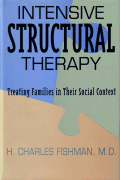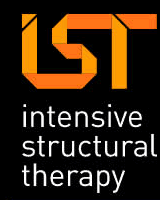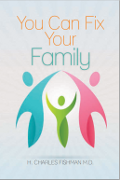Book: Intensive Structural Therapy
– Treating Families in Their Social Context
by H. Charles Fishman, M. D.

Families today are assailed on all fronts by the profound changes, such as the decline of real wages and the loss in many industries of job security, that have shaken society over the past 40 years and forced the monolithic family structure to take on a multitude of new forms, including the now-common two-income family and a single-parent family. With families now more dependent on outside institutions for help and support – from the day care centre to social services to neighbors and friends – family therapy needs a model of intervention that is capable of dealing with the new role these outside institutions and their representatives play in the life of the family.
In this groundbreaking book, Fishman takes this next logical step in the evolution of the treatment of families and details how to assess the broader system supporting and affecting the family and how to intervene effectively. Assessment techniques show how to decide which people and institutions (such as siblings, friends, co-workers, employers, social workers, teachers, clergy) need to be incorporated into the treatment. Fishman outlines how and when representatives of these outside institutions should meet with the therapist and the family. Rich case examples extensively illustrates principles of intervention for working within the family’s context and for identifying who or what is maintaining the dysfunction of the family system.
A concluding section reveals that altruism, a side of human nature too easily forgotten or dismissed, as the driving force behind the cooperative spirit regularly shown by participants in intensive structural therapy. The surprising finding is sure to inspire all who help families deal with the stresses of life today.
Endorsements for Intensive Structural Therapy
“This is the best book on family therapy technique in years – a wonderful exposition of structural methods and a strong case for including a wider network in family sessions. Richly illustrated with case transcripts, this book shows a master therapist at work. Compassionate and tough, and absolutely clear-sighted, this book firmly establishes Charles Fishman in the first rank of leading family therapists.”
– Michael P. Nichols, Ph.D., co-author of Family Healing.
“This is an excellent book that takes structural family therapy to its intended destination. With its outstanding cases, this book will be of value to both trainees and experienced therapists. Policymakers will find the second part of the book, which describes the interface of the clinician and the schools, courts, hospitals, and social service agencies, especially interesting and important.”
– Salvador Minuchin M. D., Family Studies, Inc.
“This is a clear and precise exposition of structural therapy with many, many cases that beautifully illustrate the theory. But what makes this book so special is the author’s wise and optimistic view of human nature and the human dilemma. In an age stressing self-interest and individualism, Charles Fishman finds, values, and encourages the altruism in all of us.”
– Olga Silverstein, M. S. W., author of the Courage to Raise Good Men.
“Unlike most maps depicting the interfaces of the family and its overlapping institutions, Fishman’s map is practical and useful. It really obeys the territory of the working clinician. Professionals in health and mental health, from all kinds of backgrounds and with different levels of experience, will be grateful for this user-friendly contribution.”
– Braulio Montalvo, co-author of The Difficult Divorce.
Contents of Intensive Structural Therapy
- chapter 1
- Basic Concepts
- chapter 2
- Assessment I: the 4-D. Model
- chapter 3
- Assessment II: The Homeostatic Maintainer
- chapter 4
- The Five-Step Model of Treatment
- chapter 5
- Working with Siblings
- chapter 6
- Working with Peers
- chapter 7
- The Work Context
- chapter 8
- The Legal Context
- chapter 9
- The School Context
- chapter 10
- The Hospital Context
- chapter 11
- The Social Service Context
- chapter 12
- Epilogue: Altruism


